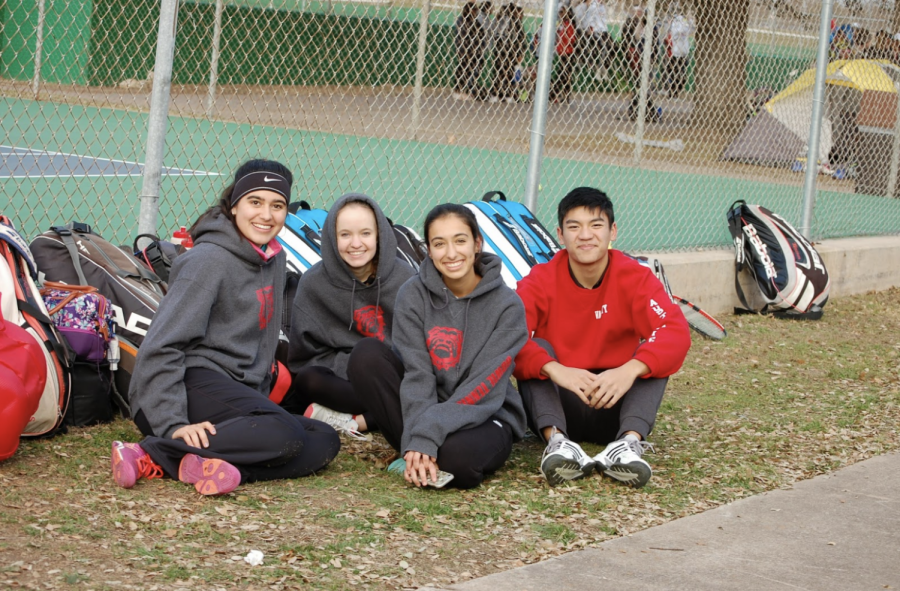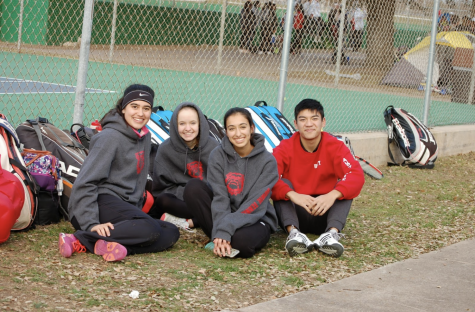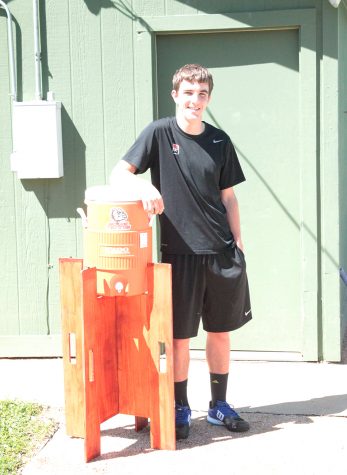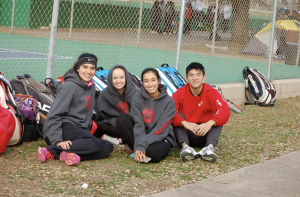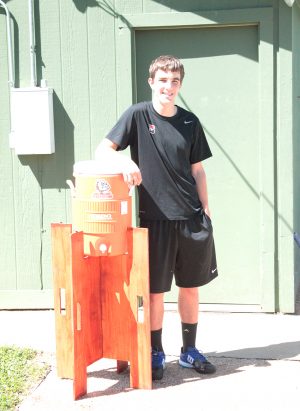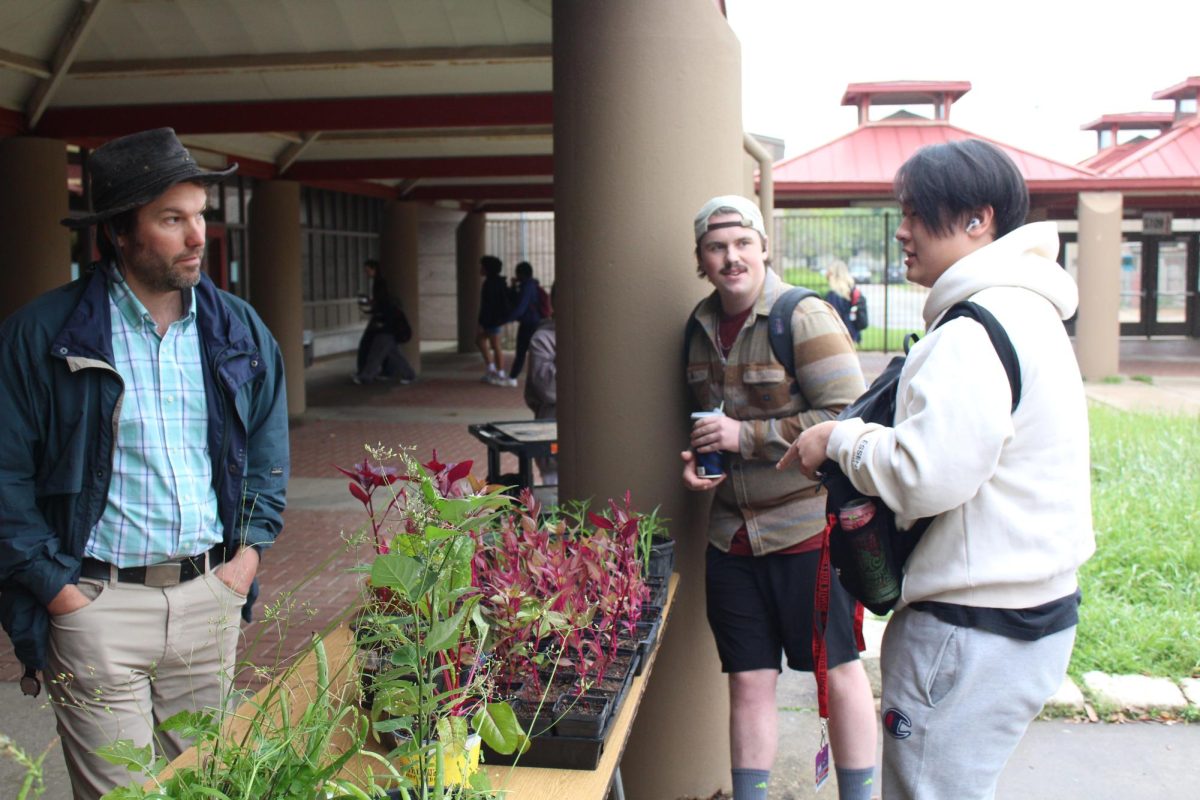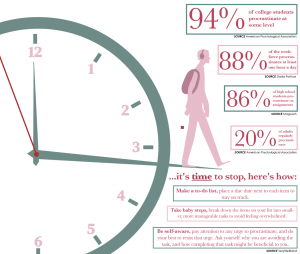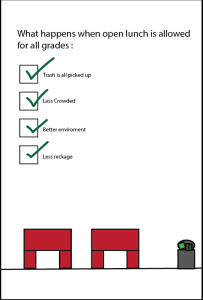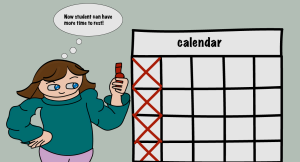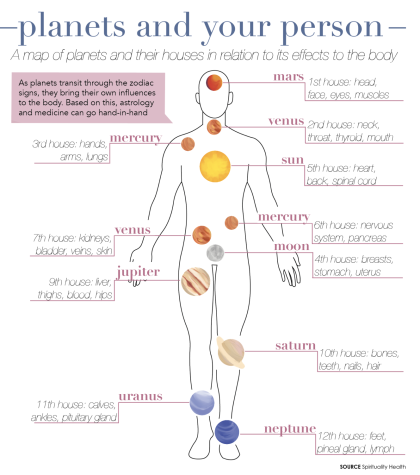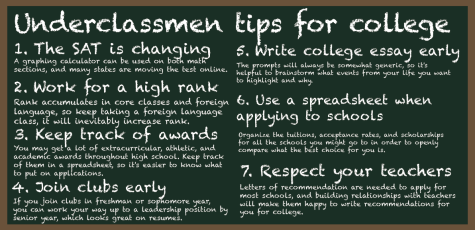Tennis Players Excel in the Classroom and on the Court
Waiting in anticipation: Emily Leeke, Kayleigh Shumaker, Sydney Johnson, and Stephen Do huddle together in the cold while waiting for their next match at UT Whitaker courts.
February 27, 2019
It’s 4:30 p.m. and the final bell has rung. Students are racing to their cars in an effort to beat the traffic, anticipating relaxing on the sofa and enjoying dinner before starting on their evening’s homework. For Bowie tennis players, however, arriving home leaves little downtime. When they aren’t rushing off to a student council meeting or club practice after school, arrival home at 5:00 p.m. means grabbing a nutritious snack, quickly make a rough plan for the evening ahead, and tackling a pile of homework if they hope to still have time for their other hobbies and get to bed at a decent hour.
For years, Bowie’s tennis team has been concurring the classroom and the court. This fall, varsity advanced to regionals and ended the season as 13th in the state. They’ve also had many of their athletes enter leadership roles and gain recognition for their academic achievements.
Although tennis practices two to three times a week during school, for many athletes practice can stretch far beyond the school day.
“My schedule is pretty busy,” freshman Christina Canepa said. “I get a lot of homework throughout the day, so I have to balance that with my after-school tennis as well as my school tennis. I usually have a lot of long nights and early mornings to finish up all my work. I practice 2-3 hours after school at Grey Rock in Circle C, and I have a tournament on the weekends. For a lot of the kids on the Bowie team that’s the case.”
According to senior Stephen Do, the hectic schedule of tournament season causes students to miss class and can often leave behind a trail of considerable makeup work that can feel overwhelming. However, Do has become accustomed to the necessity of staying on top of his classwork.
“By asking for work ahead of time and keeping ahead of due dates, I’m able to make sure that I makeup class,” Do said. “I’ve found that if you ask a teacher for work ahead of time, they are much more willing to work with you on making up work. I’m able to motivate myself because I know that in order to do well in tennis I have to clear my mind of the worries of school and to do well in school I have to manage my time with tennis.”
Even when students pick up work ahead of time, it can be difficult to catch up recounted senior Emily Leeke.
“When members of our team qualify for regionals in the spring, it’s always hard to come back to school after missing more than half of a normal school week,” Leeke said. “I remember one year when we came back my Chemistry teacher was in California, so I had to go meet with other teachers like Mrs. Stiles and Mrs. Westmoreland who I did not have on my schedule because they had tutoring times where I could learn the material I missed.”
Coach James Dammann admires his students’ efforts on and off the court.
“I think tennis a very mental sport,” Dammann said. “It involves a lot of thinking and reacting mentally and physically. We’re just awesome. I think it must all start at home. They have good leadership at home. They take care of business all by themselves. It makes me proud as a coach to have a bunch of motivated athletes who work hard to do well on and off the court.”

